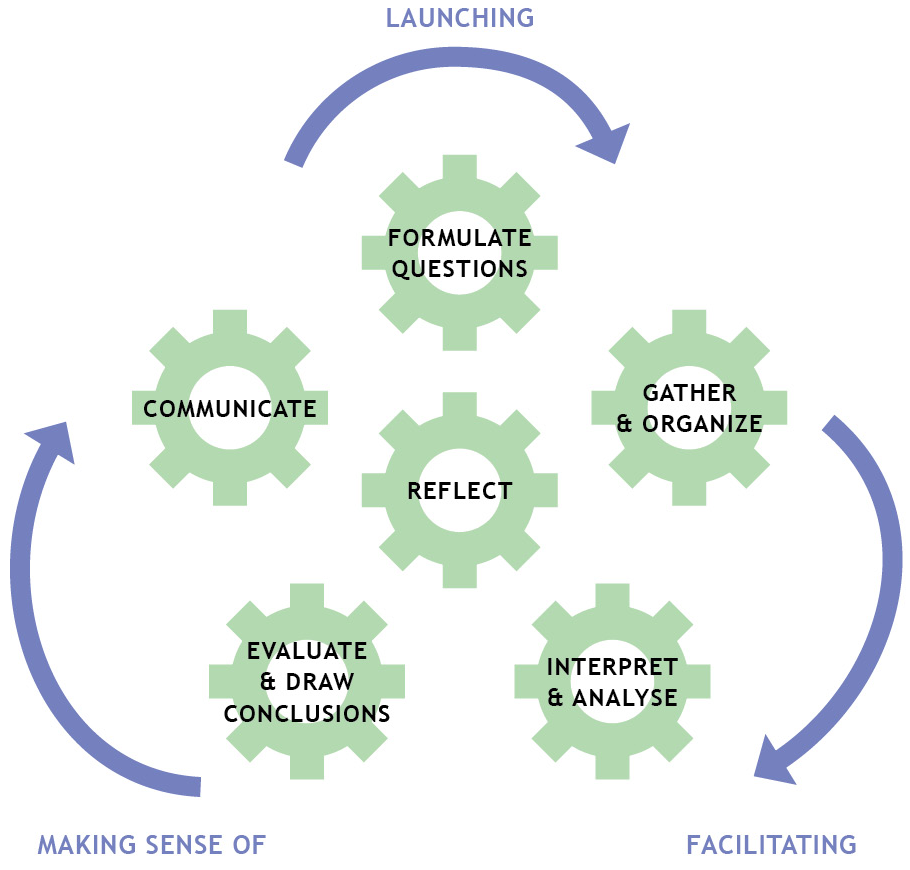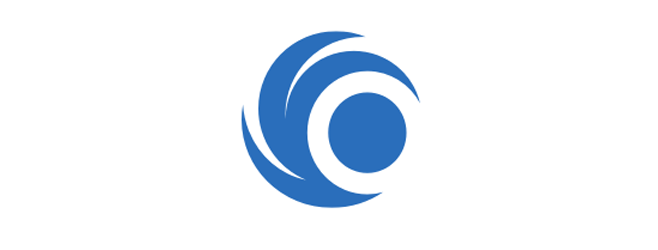“Inquiry-based learning is a process where students are involved in their learning, formulating questions, investigate widely and then build new understandings, meanings and knowledge. That knowledge is new to the students and may be used to answer a question, to develop a solution or to support a position or point of view. The knowledge is usually presented to others and may result in some sort of action" (Alberta Learning, 2004).
Central to the Inquiry-based learning approach are the following key concepts:
- The process is grounded in the curriculum.
- The process provides the opportunity to extend learning.
- The process is recursive.
- The student is involved in the construction of knowledge.
- The process starts with questions/wonderings.
- Higher-order thinking is involved.
Benefits of Inquiry-Based Learning
Students engaged in inquiry-based learning develop higher-order thinking skills such as analysing, synthesizing, evaluating, and reflecting, and they become more independent as they take responsibility for their own learning. As students pose their own questions their curiosity is piqued and as a result they are more engaged in the learning process. Throughout the inquiry process students also learn and practise collaboration and communication skills.
Inquiry Framework for Health and Physical Education (H&PE)
Adapted from the Ontario Social Studies, History, Geography, and Canadian and World Studies Curriculum (Ontario Ministry of Education, 2013), the Inquiry Framework for Health and Physical Education illustrated in Figure 1 consists of six components that can be applied to student learning in the areas of both health and physical education.
Inquiry as a process for student learning can be considered in three stages: launching, facilitating, and making sense of inquiry, with the components of an inquiry process included throughout each stage. As part of launching their inquiry, students formulate questions to explore and investigate their topic. Educators facilitate the gather and organize component as students interpret and analyse what they’ve collected within the inquiry. Once students have collected appropriate information and evidence related to their question(s) they can move forward to making sense of their evidence—they evaluate and draw conclusions; communicate what they have learned; and reflect on what, why, and how they have learned. While the stages are progressive, educators can begin the process at any stage (refer to Figure 5).
Figure 1: Inquiry Framework for Health and Physical Education: Six Components of Inquiry-Based Learning (Ontario Ministry of Education, 2013)

Stage 1: Launching
Formulate Questions: Students formulate questions or make predictions about concepts, strategies, and/or the relationships between topics or skills, and plan investigations to answer the questions as they take an active role in their learning.
Stage 2: Facilitating
Gather and Organize: Students collect, organize, and record relevant data, evidence, and/or information from appropriate primary or secondary sources. They focus and clarify ideas, concepts, strategies, or relationships between topics or skills.
Interpret and Analyse: Students interpret and assess data, evidence, and/or information, and analyse in order to identify patterns, relationships, currency, and bias; make connections; and potentially construct new knowledge.
Stage 3: Making Sense Of
Evaluate and Draw Conclusions: Students synthesize data, evidence, results, and/or information in order to make informed, critical judgments based on the reliability of the information and to explain the decision, choice, goal, or solution and its impact on themselves, others, and the world around them.
Communicate: Students consolidate and communicate observations, decisions, conclusions, goals, choices, strategies, and/or solutions clearly, logically, and effectively by using correct terminology and expressing information/results orally, in writing, or through demonstration or performance tailored to audience needs. They collaborate with others to deepen learning.
Reflect: Students reflect on initial questions, what they learned, what else they could investigate or try and what they could have done differently. They transfer learning to new situations and plan next steps.
It is important for educators to understand that the inquiry process is not a linear process. Learners may have to revise questions or develop additional questions based on what information they find during the gather and organize component or the interpret and analyse component. Students may need to gather more resources once they begin to evaluate or draw conclusions. Reflection can be performed during any stage, not only at the end of an inquiry. As educators guide students through the inquiry process, the curriculum expectations within Health and Physical Education must continue to drive student learning and assessment.
References
Alberta Learning. (2004). Focus on Inquiry: A educator’s guide to implementing inquiry-based learning. Edmonton, AB: Alberta Learning.
Ontario Ministry of Education, 2013. The Ontario Curriculum, Grades 1 to 6: Social Studies; Grade 7 and 8: History and Geography. Retrieved from http://www.edu.gov.on.ca/eng/curriculum/elementary/sshg18curr2013.pdf


